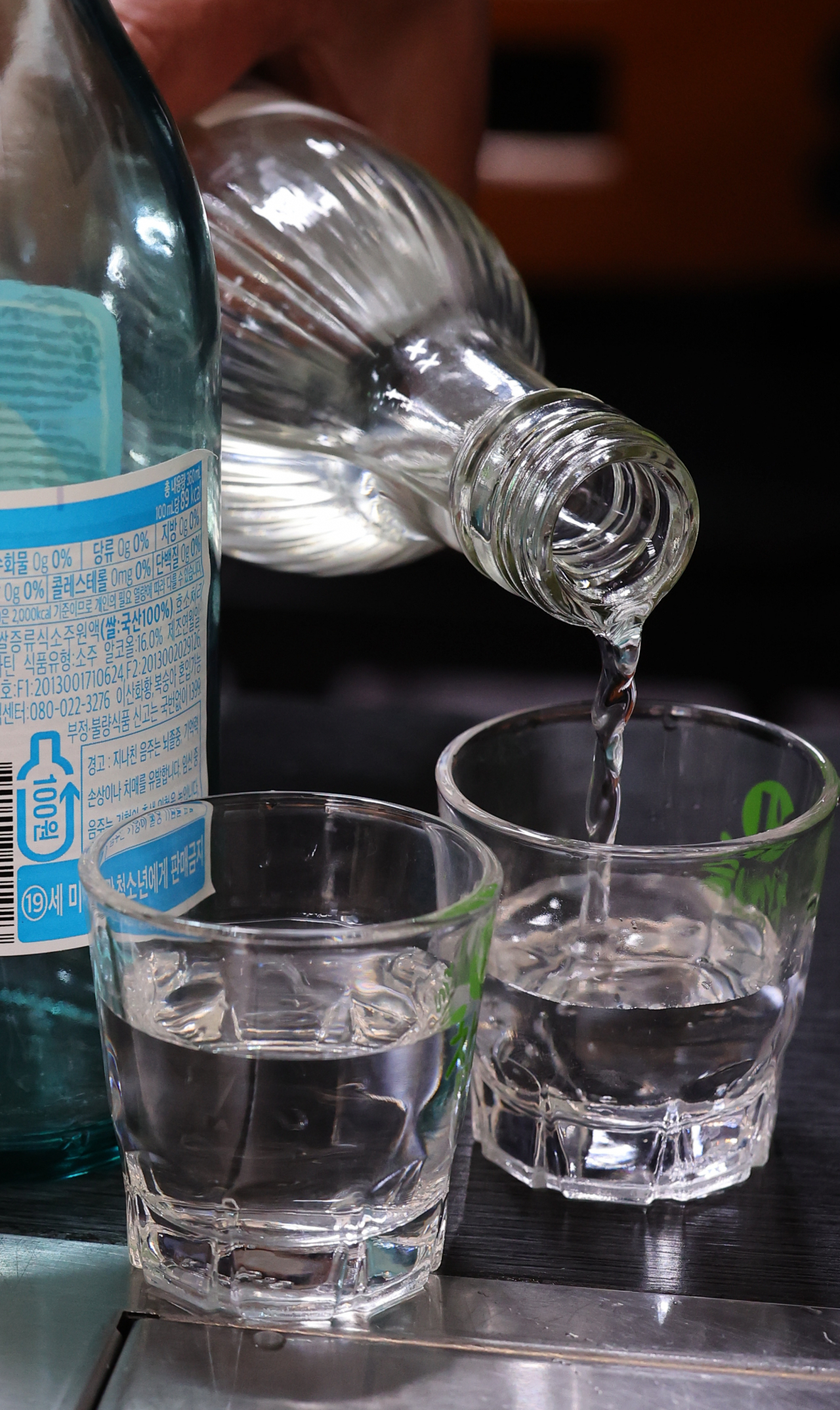Cheap shot? Soju by the glass gets mixed reactions
By Hwang Joo-youngPublished : May 28, 2024 - 18:05

South Korea widened the range of drinks that restaurants can sell by the glass Tuesday, as drinkers increasingly prefer to consume alcohol in smaller amounts, rather than by the bottle, according to government officials.
Previously, restaurants were restricted from selling most types of alcoholic beverages in individual glasses because this practice was deemed unauthorized processing by law.
Although violations such as eateries selling wine by the glass were common, restaurants that broke these rules could technically face penalties, including business suspension. Cocktails and beer were the only exemptions.
But after a legal revision came into effect on Tuesday, the exemption now extends to other alcoholic drinks, including whiskey and wine, as well as soju and rice wine. The revision was initially proposed in March and approved during last week's Cabinet meeting, according to the Ministry of Economy and Finance.
Since the National Tax Service, which oversees tax laws related to alcoholic beverage sales, began to treat the sale of cups of alcoholic beverages as legal starting in January, the revision aims to reduce confusion among consumers and retailers regarding those sales, the Finance Ministry explained on Tuesday.
However, the revision has seen mixed reactions among consumers and industry officials.
Ryu, a 32-year-old Seoul resident, said she sometimes prefers to have soju by the glass instead of the whole bottle, while her younger brother expressed concerns about whether the revision would lead to restaurants selling leftover beverages to other customers.
“Of course, sometimes I also want to consume just a few cups of soju, instead of the whole bottle. But how can I be assured that the cup of soju I ordered didn’t come from the leftovers of other customers?” the younger Ryu said.
Industry experts also expressed health and safety concerns, even casting doubts on the effectiveness of the new policy.
“If single cups of alcohol are sold, issues with storing the remaining alcohol will arise. No matter how well it’s stored, there’s always a risk of contamination,” said an industry official from a major distillery here, who wished to remain unnamed.
“In particular, for beer or rice wine, once opened, the carbonation escapes. Even if resealed, selling by the cup each time can’t prevent the carbonation from escaping, which could seriously affect the taste and quality," they added.
Another industry official said it remains to be seen what possible impacts the revision will have on the local alcohol industry.
"In terms of price, soju itself does not have a high entry barrier unlike whiskey or rum, and the capacity of a soju glass is relatively small. Personally, I don't believe that lowering the price barrier, if that is the intention of the policy, will significantly impact overall soju consumption," the official said.
"We are still withholding judgment on how the single cup sales policy will affect the overall industry."
The estimated current price for a 350-milliliter bottle of soju at restaurants in Korea's major cities is 6,000 won ($4.42), according to local media reports. One bottle typically serves about eight shots in a common-sized soju glass. Recently, videos of street vendors selling a cup of rice wine for 1,000 won have gone viral on social media, highlighting their affordability.
Meanwhile, Ha Tae-hoon, a professor of criminal law at Korea University, said that selling leftover alcoholic beverages in itself is not likely to pose legal issues.
“If customers leave behind their drinks, the ownership can be considered to belong to the restaurant owner. Unless the customer explicitly states they will come back to finish it, there may be no legal issues,” Ha explained.
A National Tax Service official also echoed this sentiment, saying, “Selling drinks left behind by other customers is a matter of the owner's conscience. It is not something that can be regulated by law.”
When it comes to concerns about hygiene, the Ministry of Food and Drug Safety advised that if people witness a certain restaurant selling drinks in an unhygienic way, they can report it to the National Food Safety Information Service at 1399.



















![[Today’s K-pop] Treasure to publish magazine for debut anniversary](http://res.heraldm.com/phpwas/restmb_idxmake.php?idx=642&simg=/content/image/2024/07/26/20240726050551_0.jpg&u=)